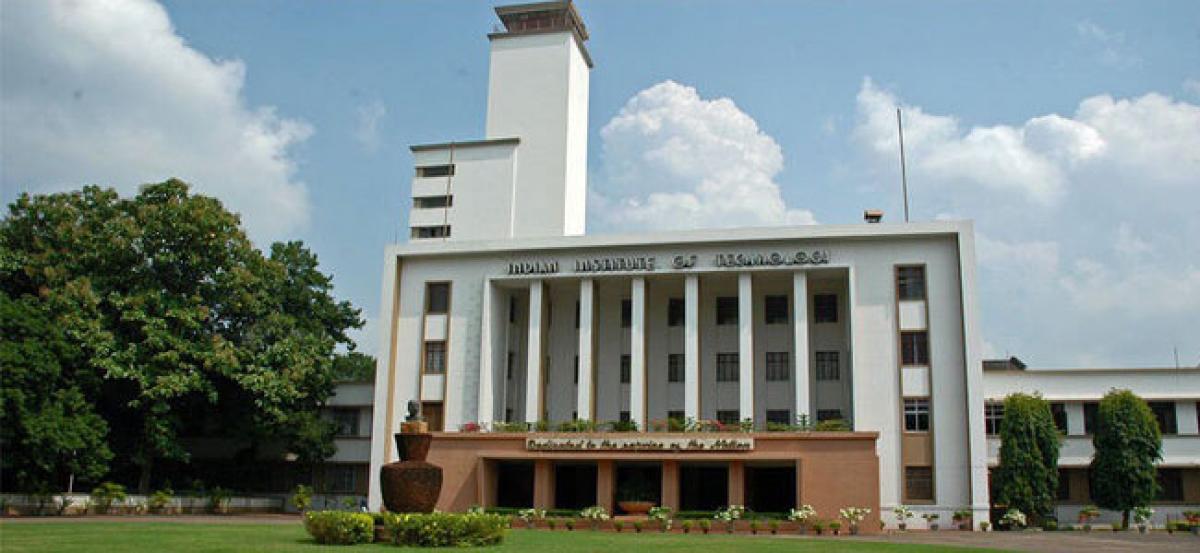Live
- Exhilarating ‘Benchmark’ of Venkat Changavalli
- Development activities worth `30 cr launched in Puthalapattu constituency
- Allegations against KTR baseless: BRS leader
- Megastar Chiranjeevi to Visit Allu Arjun’s Residence at 12 PM Today
- Nilima Rane: Trailblazer in Nursing
- Casual yet stylish office outfits for all-day comfort
- TTD to suspend all special darshans from January 10 to 19 amid Vaikuntha dwara darshans
- Naidu pats TDP leaders, cadres for enrolling 73L members
- Rupali Ganguly says for 20 years she never got an award
- Advanced anti-drone systems deployed for devotees’ safety at Mahakumbh
Just In

IIT Researchers Turn Farmers To Change Agriculture. A group of researchers at IIT Kharagpur have turned farmlands near the campus into a \'laboratory\' to experiment with new agricultural technologies and help farmers whose land they have \"adopted\" to improve their yield.
.jpg) Khentia: A group of researchers at IIT Kharagpur have turned farmlands near the campus into a 'laboratory' to experiment with new agricultural technologies and help farmers whose land they have "adopted" to improve their yield.
Khentia: A group of researchers at IIT Kharagpur have turned farmlands near the campus into a 'laboratory' to experiment with new agricultural technologies and help farmers whose land they have "adopted" to improve their yield.
Around 10 kilometres away from the campus, the team adopted 14 acres of land from a group of farmers at Khentia village.
Most of the land, in small fragments, was lying barren for the last few years. With hope in their eyes, the farmers agreed to turn in their farmlands to the IIT team.
The work began last November with tilling, ploughing and levelling of the fragmented plot to make it a single unit.
"We are introducing new technologies like SRI to increase rice yield with less water. To promote crop diversification, cash crop like sweet corn, peanut and soybean have been introduced," project in-charge Prof P B S Bhadoria said.
To encourage organic farming, they have started creating vermicompost units.
The IIT team has dug up a tubewell and also made a pond for rainwater harvesting and pisciculture.
48-year-old Jagannath Das, who owns less than 20 decimal land, says he is now learning new things about growing crops.
"We allowed them to take charge of our land because of the trust we have on such a large institution like IIT. Now we are learning new things as if our farmland has become a classroom," Das said.
Youngster Abhishek Singhania, who studied metallurgy from IIT Madras and was working with the multinational PricewaterhouseCoopers, left his job in Saudi Arabia to join this 'green revolution' last month.
"After learning about the pathetic condition of our farmers I decided to help them by joining this project. My role is to convince farmers to adopt new technology," he said.
Once the harvesting is done next month, he will help the farmers get good prices for their produce, lest they fell into the trap of middlemen.
"They need the right people to guide them at every stage of farming and marketing. I am trying to make this model a sustainable one so that once we leave they are able to do everything on their own," Singhania says.
Project officer and agriculture expert Tanumoy Bera said they are using sustainable technology for optimum utilisation of resources and minimum effect on the environment.
SRI (System of Rice Intensification) needs 30-40 per cent less water and pesticides but gives a higher yield.
Enthused by the success of the project, other farmers near the project area are also taking notes and have even approached the IIT to replicate the model.
"We would be seeking funds from the industry and other organisations to adopt more villages for demonstration of technology for a smaller period of one year," Bhadoria says.
Khentia village, where the project would go on for a period of three years, would be developed as a model village under 'Unnat Bharat Abhiyan'.
In the next phase, they would introduce censor-based irrigation, sprinkler irrigation, soil testing kits, etc.
"The share of the produce would be shared among the farmers in the proportion of their land holding," he says.

© 2024 Hyderabad Media House Limited/The Hans India. All rights reserved. Powered by hocalwire.com







